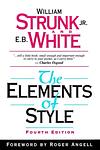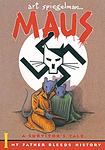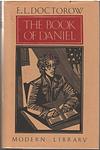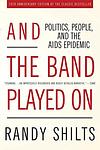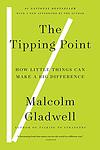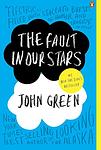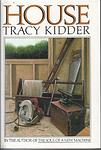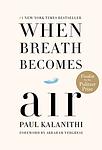The Greatest American "Medicine" Books of All Time
Click to learn how this list is calculated.
This list represents a comprehensive and trusted collection of the greatest books. Developed through a specialized algorithm, it brings together 300 'best of' book lists to form a definitive guide to the world's most acclaimed books. For those interested in how these books are chosen, additional details can be found on the rankings page.
Genres
The "Medicine" category of books encompasses a wide range of topics related to healthcare, including medical research, clinical practice, pharmacology, and public health. These books may cover topics such as disease prevention, diagnosis, treatment, and management, as well as the social, ethical, and political issues surrounding healthcare. The category includes both academic and popular works, and is intended for healthcare professionals, students, and anyone interested in learning more about medicine and healthcare.
Countries
Date Range
Reading Statistics
Click the button below to see how many of these books you've read!
Download
If you're interested in downloading this list as a CSV file for use in a spreadsheet application, you can easily do so by clicking the button below. Please note that to ensure a manageable file size and faster download, the CSV will include details for only the first 500 books.
Download-
1. The Elements of Style by E. B. White, William Strunk Jr.
This book is a definitive guide and classic manual on the principles of English language read by millions of readers. The 18 main topics are organized under headings such as Elementary Rules of Usage, Elementary Principles of Composition, A Few Matters of Form, Words and Expressions Commonly Misused, and An Approach to Style. The book's unique tone, wit and charm have conveyed the principles of English style to millions of readers, making it a beloved resource for those who want to write clear, correct and effective prose.
-
2. Maus by Art Spiegelman
This graphic novel tells the story of a Holocaust survivor, as narrated by his son. The unique use of animals to represent different nationalities and ethnic groups adds a distinctive layer to the narrative. The protagonist's father recounts his experiences as a Polish Jew during World War II, offering a poignant depiction of the horrors of the Holocaust. The narrative also explores the complex father-son relationship, revealing the impact of such traumatic historical events on subsequent generations.
-
3. Main Street by Sinclair Lewis
This novel is a satirical critique of small-town life, following the story of a young, ambitious woman who moves from the city to a quiet, conservative town in the Midwest with her new husband. Despite her attempts to bring culture and progress to the town, she is met with resistance and ostracism from the closed-minded locals. The protagonist's struggle against traditional norms and her ultimate disillusionment highlight the stifling conformity and lack of intellectual stimulation in rural America.
-
4. The Varieties of Religious Experience by William James
This book is an exploration of the diverse range of religious experiences, from the mainstream to the mystical. The author applies a psychological and philosophical approach, examining the individual, personal experiences of spirituality rather than organized religion. The book covers topics such as conversion, saintliness, and mysticism, and argues that religious experiences, rather than religious institutions, should be the primary focus of religious study.
-
5. The Principles of Psychology by William James
This comprehensive work delves into the complex subject of psychology and its fundamental principles. The author explores a wide range of topics including the functions of the brain, habits, the stream of consciousness, the self, attention, memory, and emotions. He combines philosophy and psychology to present a detailed analysis of human behavior and thought processes. The book is considered a classic in the field of psychology and continues to influence modern psychological theory.
-
6. Sexual Behavior in the Human Male by Alfred C. Kinsey
This book is a groundbreaking scientific study that provides an in-depth analysis of human male sexual behavior. It presents a comprehensive survey of male sexual activities and preferences, based on thousands of interviews and case studies. The book challenges many societal norms and taboos of its time by revealing the diversity and complexity of male sexual practices. It also explores the psychological, social, and biological factors that influence male sexuality.
-
7. The Book of Daniel by E. L. Doctorow
"The Book of Daniel" is a semi-fictional novel that explores the lives of the Isaacson family, specifically focusing on the children, Daniel and Susan, after their parents, accused of being Communists, are executed. The narrative is a combination of historical fiction and a political commentary, providing a deep exploration of the Red Scare in the United States during the Cold War era. The novel is a critical examination of social, political, and familial dynamics in a time of national fear and paranoia.
-
8. The Common Sense Book of Baby and Child Care by Benjamin Spock
This book is a comprehensive guide to child rearing, offering practical advice and information on a wide range of topics, including feeding, sleeping, health, discipline, and psychological development. It emphasizes a flexible, common-sense approach to parenting, encouraging parents to trust their own instincts and knowledge of their child. The book also discusses the importance of treating children as individuals and fostering their independence and self-confidence.
-
9. The Cider House Rules by John Irving
This novel tells the story of Dr. Wilbur Larch—saint and obstetrician, founder and director of the orphanage in the town of St. Cloud's, Maine, and a man of rare compassion and an addiction to ether. Dr. Larch loves all his orphans, especially Homer Wells, who is never adopted and becomes his invaluable apprentice. As Homer comes of age, he must leave the only home he's ever known to explore the world outside, a world filled with temptations and moral dilemmas, from the struggle over abortion to the question of what constitutes a family.
-
10. And the Band Played On by Randy Shilts
This book is a comprehensive chronicle of the emergence of the AIDS epidemic in the United States in the 1980s. It explores how the disease was initially ignored by many health professionals and politicians, leading to its spread and the deaths of thousands of people. The book also examines the impact of the disease on the gay community and the role of various institutions, including the medical community, the media, and the government, in responding to the crisis. It's a powerful critique of the indifference and negligence that allowed the disease to become a global pandemic.
-
11. The Tipping Point by Malcolm Gladwell
This book explores the concept of "tipping points," or the specific moment when an idea, trend, or social behavior crosses a threshold and spreads like wildfire. It delves into the science behind epidemics, both in terms of diseases and ideas, and dissects the factors that can cause a sudden shift in public consciousness. The author uses various case studies, from the sudden popularity of certain shoes to the decrease in New York City's crime rate, to illustrate these concepts.
-
12. Arrowsmith by Sinclair Lewis
The novel follows the life of a bright and dedicated young man, Martin Arrowsmith, who dreams of making significant contributions to medical science. He faces a constant struggle between his ambition and the demands of his professional and personal life. His journey takes him from a small Midwestern town to the prestigious universities of the East Coast, and eventually to a deadly outbreak in the Caribbean. Throughout his journey, he grapples with the corruption, greed, and mediocrity that he finds pervading the medical field, all while trying to remain true to his scientific ideals.
-
13. Coming of Age in Samoa by Margaret Mead
"Coming of Age in Samoa" is a groundbreaking anthropological study that explores adolescence, sexuality, and social norms in Samoan society. The author lived among the Samoans in the 1920s, observing and recording their way of life, particularly focusing on the experiences of teenage girls. The book challenges Western views on sexual morality and the nature versus nurture debate, suggesting that culture plays a significant role in adolescent development and behavior. The author's observations indicate that Samoan teenagers face less stress and confusion than their American counterparts, largely due to their society's relaxed attitudes towards sex and clear societal roles.
-
14. The Hero with a Thousand Faces by Joseph Campbell
This book explores the theory that important myths from around the world which have survived for thousands of years all share a fundamental structure, which the author calls the "monomyth." It outlines the stages of this monomyth, which include a hero's call to adventure, a descent into the underworld, and a triumphant return. The book also discusses how these universal patterns can provide a framework for understanding human experience and the world around us.
-
15. The Immortal Life of Henrietta Lacks by Rebecca Skloot
The book tells the story of Henrietta Lacks, a poor African American tobacco farmer whose cells, taken without her knowledge in 1951, became one of the most important tools in medicine, vital for developing the polio vaccine, cloning, gene mapping, and more. Henrietta's cells have been bought and sold by the billions, yet she remains virtually unknown, and her family can't afford health insurance. The book explores the collision between ethics, race, and medicine; of scientific discovery and faith healing; and of a daughter consumed with questions about the mother she never knew.
-
16. The Fault in Our Stars by John Green
This novel follows the poignant journey of two teenagers, both cancer patients, who meet in a support group and fall in love. Their shared experiences and unique outlook on life and death bring them closer together, and they embark on a trip to Amsterdam to meet a reclusive author they both admire. Through their journey, they explore the harsh realities of living with a terminal illness while also experiencing the beautiful and tragic aspects of first love.
-
17. The Physician by Noah Gordon
The book tells the story of a young English boy, Rob Cole, in the 11th century who becomes an apprentice to a barber-surgeon. Rob's ambition to become a physician takes him across Europe and into the heart of the Muslim world, a journey fraught with danger and discovery. He disguises himself as a Jew to study at a school that does not admit Christians. The narrative is a captivating mix of history, science, and adventure, highlighting the protagonist's perseverance and the state of medical knowledge during the Middle Ages.
-
18. The Emperor of All Maladies: A Biography of Cancer by Siddhartha Mukherjee
This book is a comprehensive history of cancer, its treatments, and the ongoing search for a cure. It presents an in-depth exploration of the disease from its first documented appearances thousands of years ago through the epic battles in the twentieth century to cure, control, and conquer it, to a radical new understanding of its essence. The book also discusses the politics of cancer research, the impact of patient activism, and the complex and often fraught relationships between researchers, oncologists, and patients.
-
19. Shadows on the Rock by Willa Cather
Set in the late 17th century, the novel explores the lives of French colonists in Quebec City. It focuses on the daily experiences of a French apothecary and his young daughter, illuminating their struggles and joys as they navigate the harsh realities of frontier life. The narrative delves into themes of faith, identity, and the human spirit's resilience, offering an intimate portrait of early colonial life in North America.
-
20. Beyond Freedom and Dignity by B. F. Skinner
This book is a controversial exploration of human behavior that challenges the idea of free will and individual autonomy, arguing instead that human behavior is largely determined by environmental factors. The author proposes that societal issues such as overpopulation, war, and pollution can be addressed by using behavioral science to shape human actions. The book also criticizes traditional notions of punishment and reward, suggesting that these methods are ineffective in influencing behavior.
-
21. Cutting for Stone by Abraham Verghese
The novel follows the life of twin brothers born from a secret union between an Indian nun and a British surgeon in Ethiopia. Their mother dies during childbirth and their father disappears, leaving them to be raised by two doctors at the mission hospital where they were born. The story spans several decades and continents, and explores themes of love, betrayal, medicine, and the complexity of family ties. One of the brothers, a gifted surgeon, flees to America after a political revolution in Ethiopia, while the other remains and struggles with the challenges of practicing medicine in a developing country.
-
22. House by Tracy Kidder
"House" is an in-depth exploration of the process of building a home from the ground up. The book follows the journey of a young couple as they work with an architect and a team of builders to construct their dream house. The narrative delves into the intricate details of construction, the complexities of the interpersonal relationships involved, and the emotional rollercoaster that comes with creating a home. It's a unique perspective on the American dream of homeownership.
-
23. Motivation and Personality by Abraham Maslow
This book is a seminal work in the field of psychology, focusing on the theory of human motivation and personality. The author posits that humans have a hierarchy of needs, with basic survival needs at the bottom and self-actualization at the top. This hierarchy influences all human behavior, as individuals strive to meet these needs in order. The book also explores the concept of peak experiences, moments of extraordinary happiness and fulfillment, which are often associated with self-actualization. It is a must-read for anyone interested in understanding human behavior and motivation.
-
24. Behaviorism by John Watson
"Behaviorism" is a seminal work in psychology that introduces and explores the theory of behaviorism, a school of thought that emphasizes the importance of observable behavior over internal mental states. The book argues that psychology should be seen as a purely objective experimental branch of natural science, with its theoretical goal being the prediction and control of behavior. The author also discusses various aspects of behavior, including emotions and thought processes, in the context of this theory.
-
25. When Breath Becomes Air by Paul Kalanithi
This poignant memoir is a reflection on life and death by a young neurosurgeon who is diagnosed with terminal lung cancer. He grapples with the role reversal from doctor to patient, and confronts the reality of his mortality. The narrative explores the intersection of medicine and philosophy, and the meaning of life when faced with death. Despite his deteriorating health, he continues to find joy in his relationships and work, leaving behind a powerful message about the value of every moment.
Reading Statistics
Click the button below to see how many of these books you've read!
Download
If you're interested in downloading this list as a CSV file for use in a spreadsheet application, you can easily do so by clicking the button below. Please note that to ensure a manageable file size and faster download, the CSV will include details for only the first 500 books.
Download